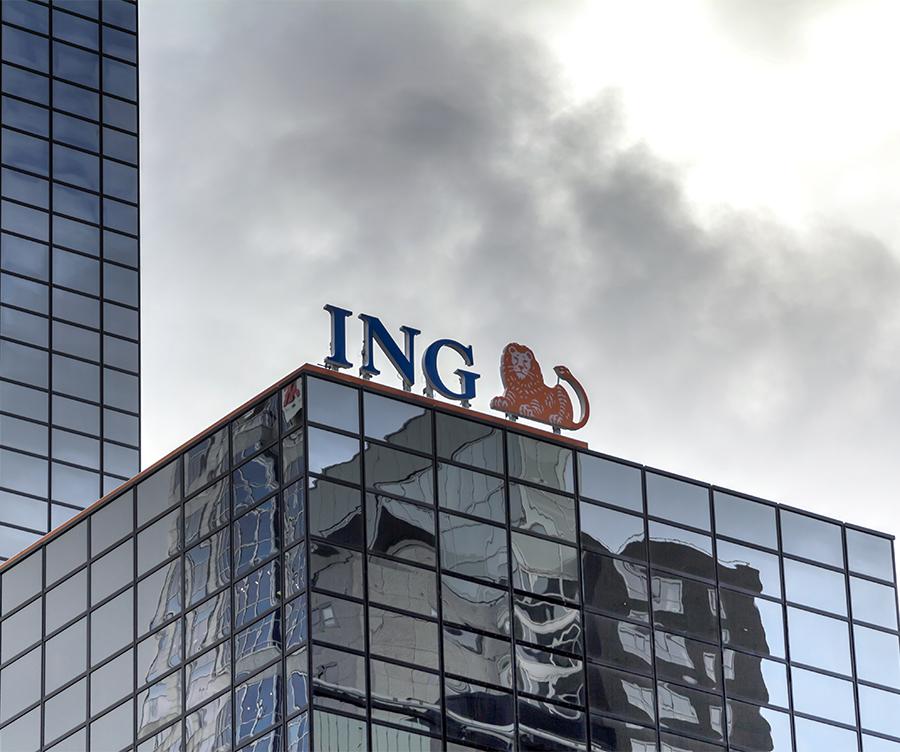ING has vowed to trim the volume of oil and gas trading it finances in a bid to reach net zero greenhouse gas emissions by mid-century.
The Dutch bank says it is the largest international trade and commodities finance lender to curb its lending to the oil and gas trading sector on environmental grounds. Rabobank also announced a similar move in November.
The decision comes amid predictions that demand for trade finance from big commodities traders will soar as well as signs that banks are stepping up their activity in the space after a period of relative caution.
ING says in a statement that it will cut the “combined volume” of traded oil and gas it finances by 19% by 2030, based on 2019 levels. It says it chose to make cuts based on volume, rather than value, due to fluctuations in market prices.
The lender is making the changes to align its lending portfolio with the International Energy Agency’s roadmap for net-zero emissions by 2050 and has already announced a similar 19% reduction to its upstream oil and gas portfolio.
The bank says it will publish reduction targets for its trade and commodities finance portfolio next year and “will be reaching out to experts and peer banks to co-develop a methodology that supports this approach”.
Asked about the reaction of the bank’s clients to the move, Maarten Koning, ING’s global head of trade and commodity finance, tells GTR: “We are permanently in contact with our stakeholders, also with our clients. We have and will explain to them our commitment to aim for net-zero in order to reduce climate change impacts.”
On whether other banks should follow suit, Koning says: “It’s up to our peers to decide what moves they make but we’re always open to collaborate on developing a methodology.”
ING has long been a major player in trade and commodities finance, recently taking lead roles in financing facilities for heavyweight energy traders Gunvor, Mercuria and Trafigura.
It also remained committed to the sector when its Dutch rivals ABN Amro and Rabobank scaled back their exposure in the wake of market volatility during Covid-19 and fraud scandals at several mid-level commodities traders.
In November last year, Rabobank announced a 20% reduction in the volume of oil and gas trades it finances by 20% by 2030 – which the bank said represents 1-2% of its total balance sheet – in order to meet the goals of the 2015 Paris climate agreement.
ING also announced today it will end financing of midstream oil and gas related to new production facilities, although that criteria only applies to around 10% of its US$14bn exposure to the midstream sector, Reuters reported. Midstream generally includes infrastructure such as storage, transport and processing of oil and gas.
Global Witness, an NGO, criticised ING’s announcement as only a tentative step when drastic action is required to curb global warming.
“This is certainly a step in the right direction, but it risks being a distraction from what’s urgently needed, which is to starve fossil fuel companies of the financing they need to sustain and expand their operations, so that we can phase out oil and gas at the rate required to avert catastrophic climate breakdown,” Alice Harrison, Global Witness’ fossil fuels campaign leader, tells GTR.
“The sort of incremental change we’re seeing in the finance sector just isn’t going to cut it. A far more radical overhaul is required to shift our economies onto a greener, cleaner path.”
ING had already ended financing for new coal-fired power in 2015 and has pledged to exit the sector by 2025, along with a raft of other commercial and public lenders.
The bank says it has no plans to quit fossil fuels altogether, arguing “the world still needs them – for heating, transport, steelmaking and more”.






